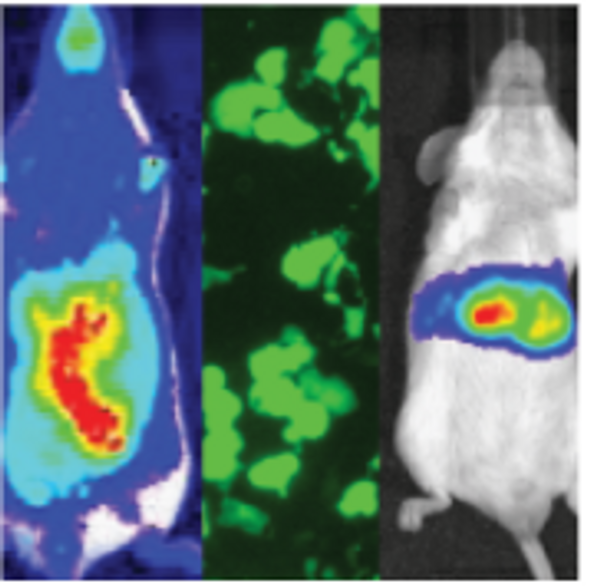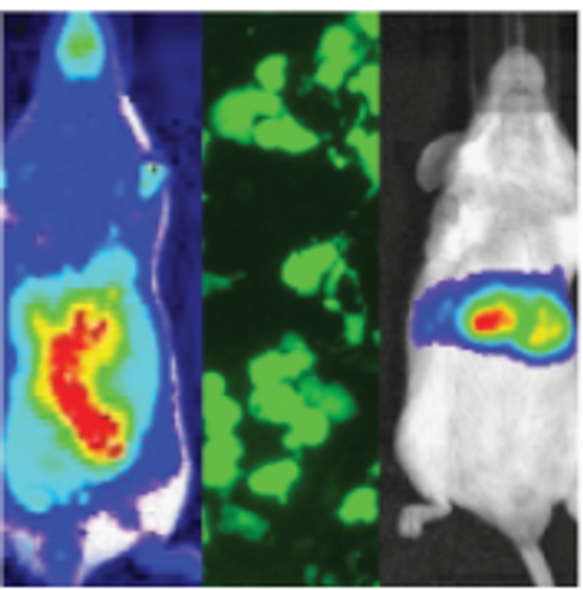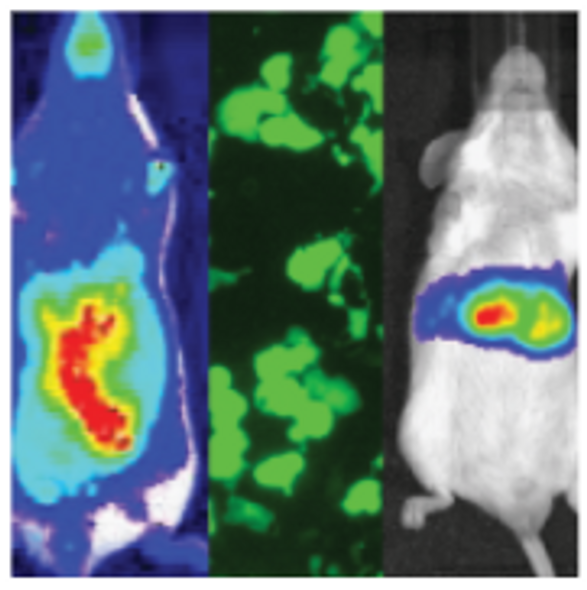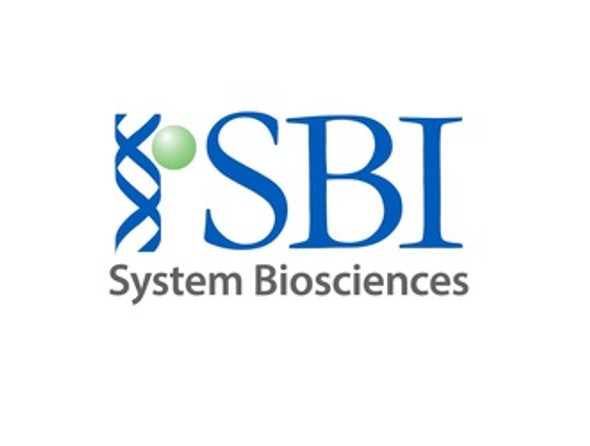System Biosciences
Minicircle Dual Reporter: UBC-GFP-T2A-Luciferase Parental Plasmid (10 ug)
- SKU:
- BLIV505MN-1
- Availability:
- Usually Shipped in 5 Working Days
- Size:
- 10 ug
- Shipping Temperature:
- Blue Ice/ Dry Ice
- Qualifications:
- Academic/ Non-profit customers only
Description
Minicircle Dual Reporter: UBC-GFP-T2A-Luciferase Parental Plasmid (10 ug). Cat# BLIV505MN. Supplier: SBI System Biosciences


Overview
Easily label cell lines for tracking cell fate after implantation in an animal model or other imaging applications with SBI’s line of Bioluminescent, Fluorescent, and PET Imaging Vectors (BLIV). Available in a variety of promoter-reporter combinations that enable multiple imaging modalities—fluorescence with copGFP, bioluminescence with luciferase, and positron emission tomography (PET) with thymidine kinase (TK)—you can select from lentivector or minicircle technologies for both integrated and episomal expression.
SBI's minicricle-based imaging systems offer safe and efficient gene delivery with a number of benefits:
- Foreign DNA-free—they are devoid of bacterial plasmid sequences, enabling gene therapy development and other in vivo applications
- More easily transfected—their small molecular size increases transfection efficiency
- Non-integrating—they reduce the risk of insertional mutagenesis due to their episomal nature
- Long-lasting—they deliver sustained expression over a period of weeks or months
- Safe—they are less toxic to cells, inducing lower stress and inflammation responses than other gene delivery systems
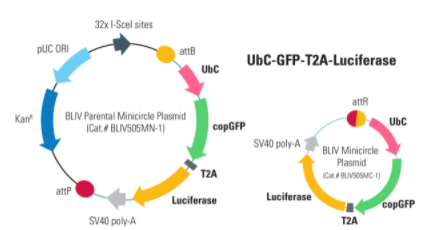
The UbC-GFP-T2A-Luciferase Minicircle for In Vivo Imaging leverages SBI’s easy-to-use Minicircle Technology to deliver copGFP and luciferase to target cells. The reporters are co-expressed from a UbC promoter for low expression in most cell types, including primary and stem cells, with co-expression mediated by a T2A element. The UbC-GFP-T2A-Luciferase Minicircle is available as both parental plasmid and ready-to-transfect minicircle DNA*.
Which BLIV construct should you choose?
With a range of options, SBI’s vectors for in vivo imaging support a wide range of projects. Simply choose the vector that best fits your needs:
Choose a lentivector when:
- You’re working with difficult-to-transfect cells
- You’d like to create stable reporter cell lines
- You’d like to integrate your reporter into the genome
Choose a minicircle vector* when you’re working with transfectable cells and:
- You’d like episomal expression
- You’d like to avoid introducing foreign sequences
Choose your promoter using the following table:

*Note that Minicircle Parental Vectors are only available to academic/non-profit customers. Researchers at commercial organization may only purchase the pre-made minicircle BLIVs.
Supporting Data
See SBI’s BLIV Vectors in action
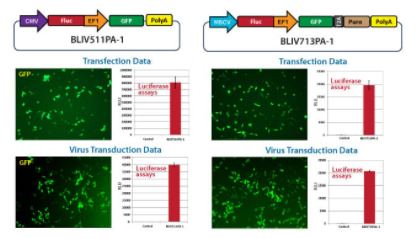
Figure 1. Examples of how SBI’s BLIV lentivectors deliver strong luciferase activity after both transduction and transfection.
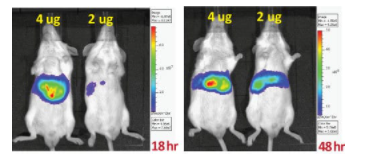
Figure 2. Examples of how SBI’s BLIV minicircle vectors deliver strong luciferase activity in small animal models.
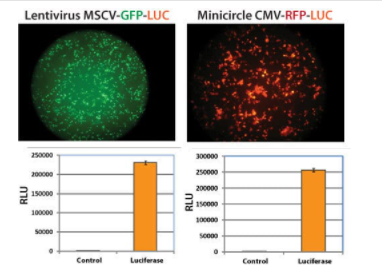
Figure 3. Examples of how SBI’s BLIV lentivectors and minicircle vectors can be used to generate stable cell lines with strong luciferase activity.







